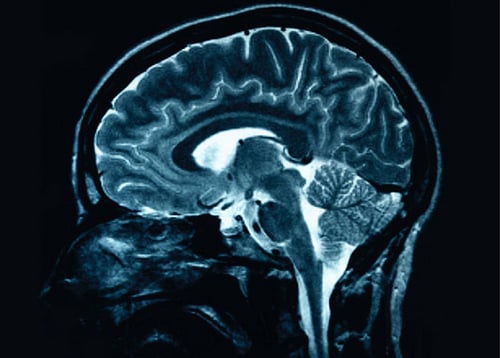Did you know that if you’ve suffered a head injury earlier in life, you may be more likely to develop Alzheimer’s or another form of dementia in your senior living years?
While there is no single known cause of Alzheimer’s, medical research has shown that there is a direct link between dementia and Traumatic Brain Injuries (TBI).

Here are a few of the key facts about TBI and dementia from the Alzheimer’s Association:
- Studies have shown that older adults who have suffered moderate brain trauma can be up to 2.3 times more likely to develop dementia than an older adult who had no history of TBI.
- A severe TBI can increase the risk of developing Alzheimer’s by 4 and a half times that of the average senior.
- Emerging evidence suggests that the repetition of mild traumatic brain injuries—such as those that occur in contact sports like American football, hockey and soccer— may be linked to a greater risk of a type of dementia called chronic traumatic encephalopathy. The link between chronic traumatic encephalopathy and boxing has been all but proven.
- Clinical research indicates that the link between TBI and Alzheimer’s are related to brain chemistry. Current studies are focusing on how the upset of brain chemistry from a traumatic brain injury could relate to the hallmark protein abnormalities (beta-amyloid and tau) that have been linked to Alzheimer's.
- Some research seems to suggest that TBI is more likely to increase the risk of Alzheimer’s in individuals with a variation of the gene for apolipoprotein E (APOE) called APOE-e4, but more research is needed to understand the link between APOE-e4 and dementia risk – especially as it relates to those who have suffered a brain injury.
The impact of TBI in the United States
According to the CDC, TBI is among the most dangerous (and costly) injuries that regularly occur in the United States:
- Every year, at least 1.7 million TBIs occur either as an isolated injury or along with other injuries.
- TBI is a contributing factor to a third (30.5%) of all injury-related deaths in the United States.
- About 75% of TBIs that occur each year are concussions or other forms of mild TBI.
- Adults aged 75 years and older have the highest rates of TBI-related hospitalization and death (usually the result of a fall).
- Direct medical costs and indirect costs such as lost productivity of TBI totaled an estimated $76.5 billion in the United States in 2000.
Cost is compounded when you combine medical and other costs with the potential need of long term care due to an increased risk for Alzheimer’s.
- In 2013, the Alzheimer’s Association estimates that the direct costs of Alzheimer's care will total $203 billion.
- Only $142 billion of that amount will be supplemented by Medicare or Medicaid.
- Total payments for health care, long-term care and hospice for people with Alzheimer's and other dementias are projected to increase from $203 billion in 2013 to $1.2 trillion in 2050.
Learning More and Raising Awareness
September is National Traumatic Brain Injury Awareness Month, so now is the perfect time to get involved in the mission to educate the American public about the seriousness of Alzheimer’s, Dementia and TBI in our nation. You can join the fight by helping to raise public awareness or by raising donations for strategic research initiatives on Alzheimer’s, dementia, and how to minimize the number traumatic brain injuries suffered by Americans.
If you’re interested in finding out more about TBI and its relationship to Alzheimer’s and dementia, visit the Johnny O Alzheimer’s, Dementia, and TBI Awareness Foundation or the Alzheimer’s Association to learn more and see how you can participate in TBI Awareness Month this September.
Image courtesy of wellunwell on Flickr.












